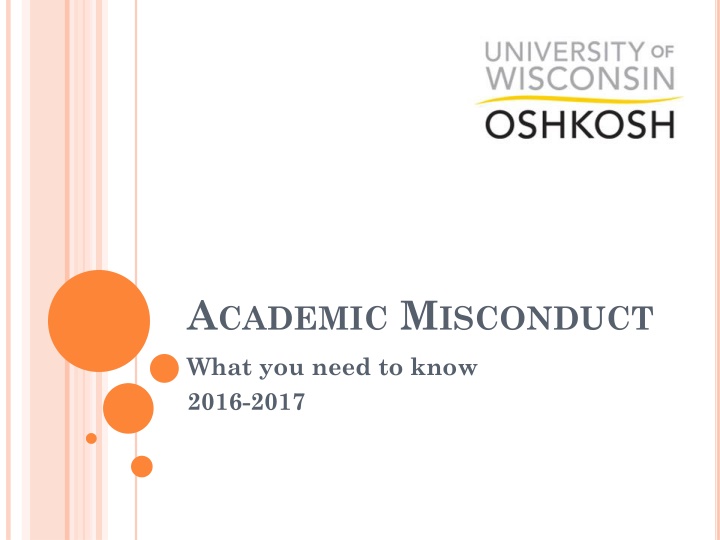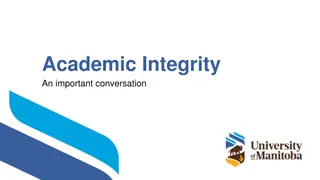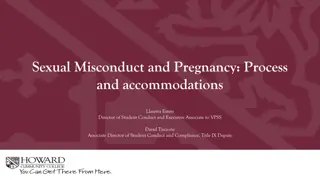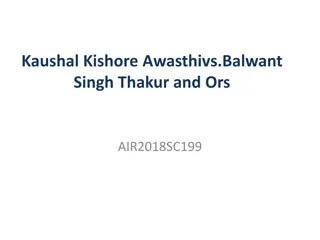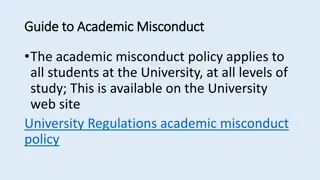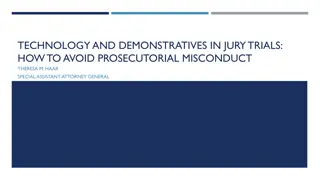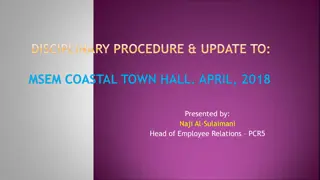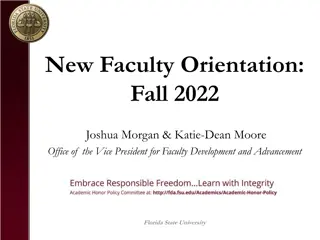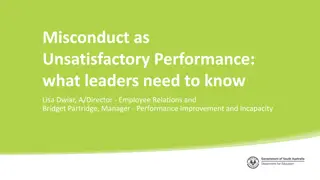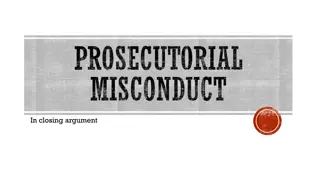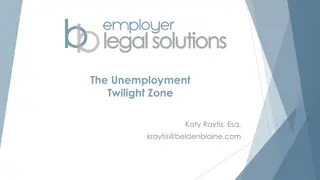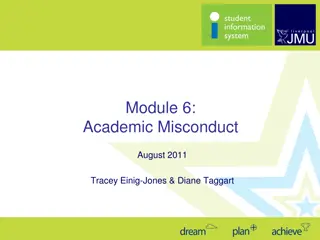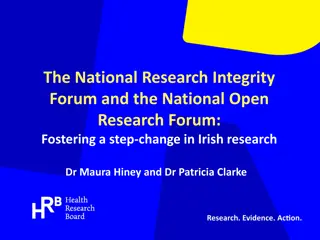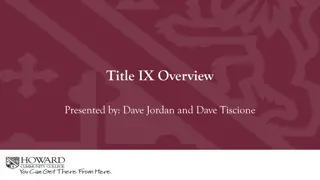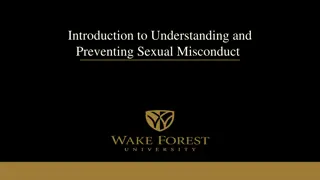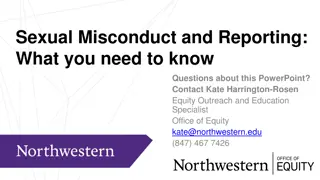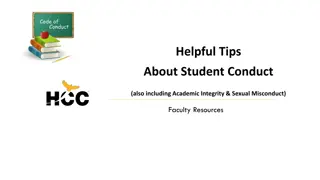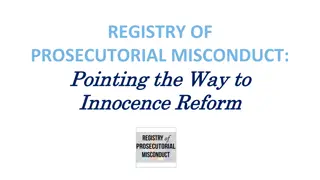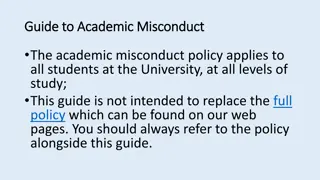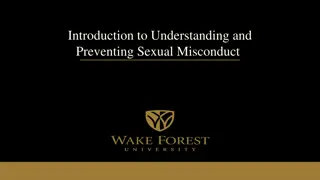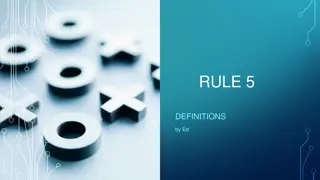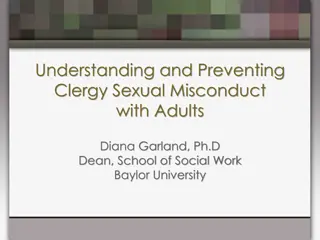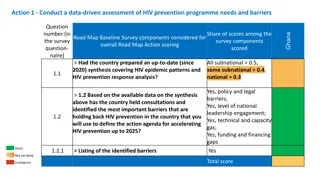Academic Misconduct in University: Understanding and Prevention
Explore the crucial aspects of academic misconduct in university settings, including definitions, disciplinary procedures, and prevention strategies. Learn about the importance of academic honesty, handling misconduct cases, and promoting integrity among students to maintain a fair educational environment.
Download Presentation

Please find below an Image/Link to download the presentation.
The content on the website is provided AS IS for your information and personal use only. It may not be sold, licensed, or shared on other websites without obtaining consent from the author.If you encounter any issues during the download, it is possible that the publisher has removed the file from their server.
You are allowed to download the files provided on this website for personal or commercial use, subject to the condition that they are used lawfully. All files are the property of their respective owners.
The content on the website is provided AS IS for your information and personal use only. It may not be sold, licensed, or shared on other websites without obtaining consent from the author.
E N D
Presentation Transcript
ACADEMIC MISCONDUCT What you need to know 2016-2017
UWS 14: Student Academic Disciplinary Procedures (UW Oshkosh Dean of Students Office webpage under Student Conduct ) Academic Misconduct is handled by the instructor
ACADEMIC HONESTY Academic honesty is fundamental to the integrity of the university, and academic misconduct is taken very seriously. Students are responsible for the honest completion and representation of their work, for the appropriate citation of sources, and for respect of others academic endeavors (UWS 14.01).
PREVENTION OF ACADEMIC MISCONDUCT Communicate with students the importance of academic integrity and your expectations Include something in your syllabus about academic integrity Communicate with students the consequences of academic dishonesty Use resources like TurnItIn.com
PREVENTION Encourage students to talk with you if they are unsure how to properly cite others materials Define if, when and how collaboration or group work is appropriate in your course Specify whether it is acceptable to submit work previously submitted in another course
WHAT IS ACADEMIC MISCONDUCT? Under Chapter UWS 14 (Student Academic Disciplinary Procedures), academic misconduct means an act in which a student (UWS 14.03(1)): Seeks to claim credit for the work or efforts of another without authorization or citation; a) Uses unauthorized materials or fabricated data in any academic exercise; b) Forges of falsifies academic documents or records; c)
WHAT IS ACADEMIC MISCONDUCT? Under Chapter UWS 14 (Student Academic Disciplinary Procedures), academic misconduct means an act in which a student (UWS 14.03(1)): Intentionally impedes or damages the academic work of others; d) Engages in conduct aimed at making a false representation of a student s academic performance; or e) Assists other students in any of these acts. f)
EXAMPLES OF ACADEMIC MISCONDUCT Cheating on an exam Collaborating with others in work to be presented, contrary to the stated rules of the course Submitting a paper or assignment as one s own work when all or part of the paper or assignment is the work of another Find more examples in UWS 14.03(2)
WHAT CAN HAPPEN TO A STUDENT WHO ENGAGES IN ACADEMIC MISCONDUCT? (SANCTIONS) Academic misconduct is subject to disciplinary action which can include one or more of the following sanctions (UWS 14.04(1)): An oral reprimand; a) A written reprimand presented only to the student; b) An assignment to repeat the work, to be graded on its merits; c) For sanctions (a) through (c), no decision letter/report is required, but the instructor is required to inform the student of their right to a hearing. The decision is between the instructor and the student.
SANCTIONS, CONTINUED A lower or failing grade on the particular assignment or test; d) A lower grade in the course; e) A failing grade in the course; f) Removal of the student from the course in progress; g) A written reprimand to be included in the student s disciplinary file; h) For sanctions (d) through (h), a decision letter/report is required; the letter should include information about the student s right to a hearing and link to Ch. UWS 14; copy the Dean of Students Office and the Department Chair.
SANCTIONS, CONTINUED Disciplinary probation; or i) Suspension or expulsion from the university. j) For sanctions (i) and (j), the instructor should contact the Dean of Students Office for consultation. A decision letter/report is required, referring the student to the Dean of Students Office; copy the Dean of Students Office and the Department Chair. These sanctions require a formal hearing.
AT UW OSHKOSH, IT IS NOT UNCOMMON: For a first instance of academic misconduct: To result in an assignment to repeat the work, a lower/failing grade on a particular assignment/text, or a lower/failing grade in the course. For a second instance of academic misconduct that is reported to the Dean of Students Office: To result in suspension from the university.
WHAT HAPPENS WHEN AN INSTRUCTOR BELIEVES A STUDENT HAS ENGAGED IN ACADEMIC MISCONDUCT? (UWS 14.05 & 14.06) (INSTRUCTOR ACTIONS) The instructor will offer to discuss the matter with the student to review the bases for his or her belief that the student engaged in academic misconduct and to give the student an opportunity to respond. The instructor will then determine if academic misconduct occurred. (The standard of proof used in most cases is a preponderance of the credible evidence.) If the determination is that no academic misconduct occurred, the matter will be considered resolved.
INSTRUCTOR ACTIONS, CONTINUED If the determination is that academic misconduct occurred, the instructor will recommend the sanction(s) to be imposed. A student has the right to request a hearing to contest the determination that academic misconduct occurred, or the choice of disciplinary sanction, or both. If the student does not request a hearing within 10 days, the determination of academic misconduct shall be regarded as final, and the disciplinary sanction(s) recommended shall be imposed.
DECISION LETTER/REPORT A sample disciplinary letter and a template are available in a Google Docs Folder on Academic Misconduct and from the Dean of Students Office.
DEAN OF STUDENTS OFFICE INVOLVEMENT (14.07): (a) When some/all of alleged academic misconduct occurred outside the scope of any course for which the involved student is currently registered; (b) When the involved student has previously engaged in academic misconduct subject to the disciplinary sanctions listed in UWS 14.04(1)(d) through (j);
DEAN OF STUDENTS OFFICE INVOLVEMENT (CONT.): (c) When the alleged misconduct would, if proved to have occurred, warrant a sanction of disciplinary probation, suspension or expulsion; or (d) When the instructor is unable to proceed.
ADDITIONAL ITEMS TO KNOW Disruptive behavior in class Classroom Management: Communicate your expectations for classroom behavior in your syllabus and review them in class. Privately address a student s behavior (when possible) and hold student accountable. For continued disruption, contact your department chair for advice or consult with the Dean of Students Office. Beyond Classroom Management: If there is imminent threat, contact 911 or University Police (920-424-1212). If there is not imminent threat, contact the Dean of Students Office (920-424-3100) to determine if disciplinary action for nonacademic misconduct is warranted.
ADDITIONAL ITEMS TO KNOW Confidentiality under FERPA (Family Educational Rights & Privacy Act) Federal law that governs student education records Identifies directory information (which is public/ shareable) as student s name, address, phone number, email address, date & place of birth, classification, major field of study, dates of attendance, full-/part-time status, degrees & awards received, participation in officially recognized activities & sports, weight & height of athletic team members, and the most recent previous educational agency/institution attended by the student. All other personally identifiable information from a student s education records cannot be disclosed to a 3rdparty without written permission of the student.
ADDITIONAL ITEMS TO KNOW Exceptions to FERPA: Campus personnel are free to share information from student education records with other school officials who have legitimate educational interests in the information. This allows you to share information about a student s record with others on campus when there is an educational need to know. A school can share information to appropriate parties in connection to a health or safety emergency involving a student. A school can share disciplinary information to parents of students under 21 when the student has violated university alcohol or drug policies.
FOR FURTHER INFORMATION, QUESTIONS, OR CONCERNS: Dean of Students Office Dempsey Hall, Room 125 800 Algoma Blvd. Oshkosh, WI 54901 (920) 424-3100 http://www.uwosh.edu/deanofstudents/university- polices-procedures For the full text of Chapter UWS 14, Student Academic Disciplinary Procedures, please consult the Dean of Students Office website, http://www.uwosh.edu/deanofstudents/university-polices- procedures/academic-misconduct
